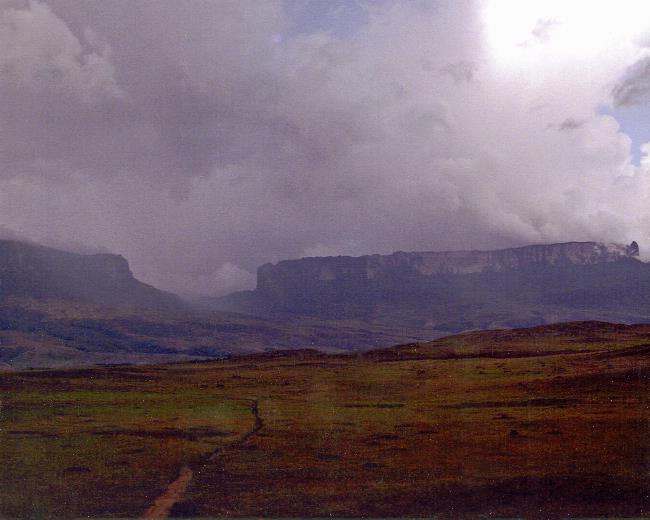Holidays in Venezuela

Understanding Venezuela
Venezuela was one of three countries that emerged from the collapse of Gran Colombia in 1830 (the others being Ecuador and New Granada, which became Colombia). For most of the first half of the 20th century, Venezuela was ruled by generally benevolent military strongmen, who promoted the oil industry and allowed for some social reforms. Democratically elected governments have held sway since 1959. Hugo CHAVEZ, president from 1999 to 2013, sought to implement his "21st Century Socialism," which purported to alleviate social ills while at the same time attacking capitalist globalization and existing democratic institutions. His hand-picked successor, President Nicolas MADURO, continues CHAVEZ's socialist programs. Current concerns include: a weakening of democratic institutions, political polarization, a politicized military, rampant violent crime, overdependence on the petroleum industry with its price fluctuations, foreign exchange controls that discourage private-sector investment, high inflation, a decline in the quality of fundamental houman rights, and widespread scarcity of consumer goods.
Venezuela economy
Venezuela remains highly dependent on oil revenues, which account for roughly 96% of export earnings, about 45% of budget revenues, and around 12% of GDP. Fueled by high oil prices, pre-election government spending helped spur GDP growth in 2012 to 5.6%. Government spending, minimum wage hikes, and improved access to domestic credit created an increase in consumption which combined with supply problems to cause higher inflation - roughly 20% in 2012 and rising to more than 56% in 2013. Former President Hugo CHAVEZ's efforts to increase the government's control of the economy by nationalizing firms in the agribusiness, financial, construction, oil, and steel sectors hurt the private investment environment, reduced productive capacity, and slowed non-petroleum exports. In 2013, Venezuela continued to wrestle with housing and electricity crises, and rolling food and goods shortages, resulting from the government's unorthodox economic policies. The budget deficit for the public sector reached 17% of GDP in 2012 and was trimmed to under 10% of GDP in 2013. The Venezuelan government has maintained a regime of strict currency exchange controls since 2003. Venezuelan law now sanctions a three-tiered exchange rate system, with rates based on the government's import priorities.
Issues in Venezuela
claims all of the area west of the Essequibo River in Guyana, preventing any discussion of a maritime boundary; Guyana has expressed its intention to join Barbados in asserting claims before the United Nations Convention on the Law of the Sea that Trinidad and Tobago's maritime boundary with Venezuela extends into their waters; dispute with Colombia over maritime boundary and Venezuelan administered Los Monjes islands near the Gulf of Venezuela; Colombian organized illegal narcotics and paramilitary activities penetrate Venezuela's shared border region; US, France, and the Netherlands recognize Venezuela's granting full effect to Aves Island, thereby claiming a Venezuelan Economic Exclusion Zone/continental shelf extending over a large portion of the eastern Caribbean Sea; Dominica, Saint Kitts and Nevis, Saint Lucia, and Saint Vincent and the Grenadines protest Venezuela's full effect claim
Refugees and internally displaced persons:
refugees (country of origin):
204,259 (Colombia) (2013)
Trafficking in persons:
current situation:
Venezuela is a source, transit, and destination country for men, women, and children subjected to sex trafficking and forced labor; Venezuelan women and girls are trafficked within the country for sexual exploitation, lured from the nation's interior to urban and tourist areas; women from Colombia, Peru, Haiti, China, and South Africa are also reported to have been sexually exploited in Venezuela; some Venezuelan women are transported to Caribbean islands, particularly Aruba, Curacao, and Trinidad & Tobago, where they are subjected to forced prostitution; some Venezuelan children are forced to beg on the streets or work as domestic servants, while Ecuadorian children, who are often from indigenous communities, are subjected to forced labor
tier rating:
Tier 2 Watch List - Venezuela does not fully comply with the minimum standards for the elimination of trafficking; however, it is making significant efforts to do so; the government has increased the investigation of forced labor crimes but has not publicly document progress on prosecutions and convictions of trafficking offenders or on victim identification or assistance; the government also does not report on the existence of formal procedures for identifying trafficking victims and referring them to victim services; authorities provide limited funding to some NGOs providing victim services; public service announcements and an awareness campaign on human trafficking have continued (2013)
Illicit drugs:
small-scale illicit producer of opium and coca for the processing of opiates and coca derivatives; however, large quantities of cocaine, heroin, and marijuana transit the country from Colombia bound for US and Europe; significant narcotics-related money-laundering activity, especially along the border with Colombia and on Margarita Island; active eradication program primarily targeting opium; increasing signs of drug-related activities by Colombian insurgents on border
Cities in Venezuela
acarigua altagracia de orituco anaco araure bachaquero barcelona barinas barinitas barquisimeto baruta cabimas cabudare cagua calabozo cantaura caraballeda caracas carora carrizal carupano catia la mar caucaguita chacao charallave chivacoa ciudad bolivar ciudad guayana ciudad ojeda coro cua cumana ejido el cafetal el hatillo el limon el tigre el tocuyo el vigia goaigoaza guacara guanare guarenas guasdualito guatire guigue la asuncion la dolorita la fria la guaira lagunillas la victoria los dos caminos los rastrojos los teques machiques maiquetia maracaibo maracay mariara maturin moron nirgua ocumare del tuy palo negro petare porlamar puerto ayacucho puerto cabello punta cardon punto fijo quibor rubio san antonio del tachira san carlos del zulia san carlos san cristobal san felipe san joaquin san jose de guanipa san juan de colon san juan de los morros san mateo santa rita santa teresa tacarigua tariba tinaquillo trujillo tucupita turmero upata valencia valera villa bruzual villa de cura villa del rosario yaritagua zaraza What do you think about Venezuela?

